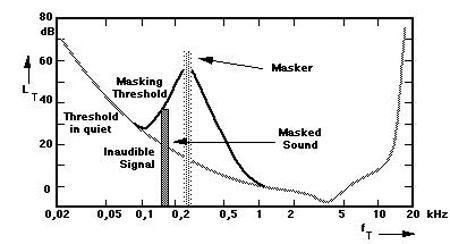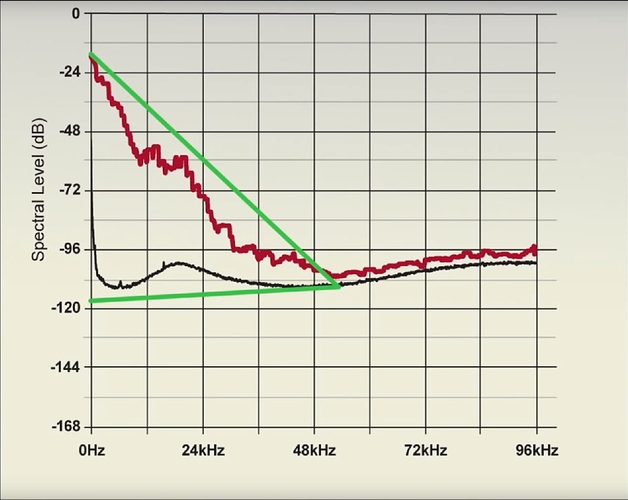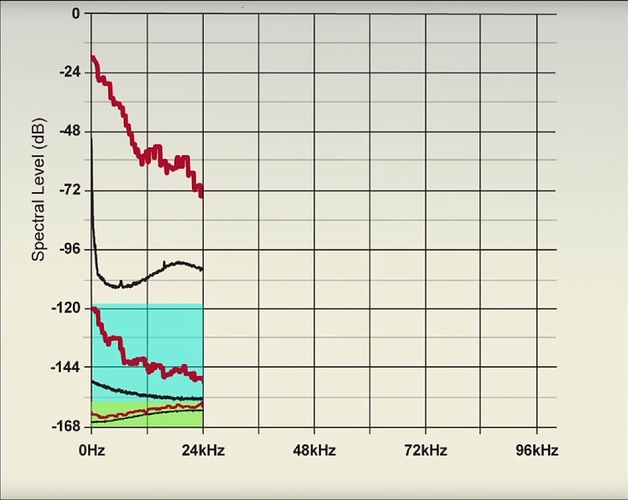Hans admits to having learned more later. what did you know about MQA 3 years ago? You never make mistakes? Hans could also took the video ofline, he chose not to do this. [DrTone] How good are you to admit mistakes?
@Carl, are posters now under discussion/insult?
I certainly can engage on this level if the ground rules have changed.
This really is the only thing to do - or at least a point by point update as to what he and everyone else have learned:
- MQA is not “end to end”, except as a $licensing$ scheme
- It’s not Hi Res - it’s not even 16/44, it’s lossy
- It’s folding art is irrelevant in today’s bandwidth/storage realities, and even when relavant 18/96 FLAC is open standard, non lossy, and does not need a $license$, new equipment, updated software, etc.
- MQA is about DRM.
- Even as a DRM product, MQA is not very good - too easily manipulated
- “Blurring” is marketing speak for “ringing”, and MQA’s solution to this largely non problem brings it’s own host of problems such as IM distortion.
This list could easily be expanded and is elsewhere…
Sounds great though doesn’t it?
You just call ‘’ its not ‘’ tell why?
If the original is not hires, it will never be hires by MQA.
If it is MQA and it is played on a non-supported device THEN it does play but within the limits of THAT device.
Folding is relevant for the streaming party as Tidal simply because it is less data.
‘‘MQA is about DRM’’ but then quality wise for the consumer. If the original is not 24/192 but an upsample it will not play as MQA. So you have been scammed. MQA consists of “hiding” the hi-res information in the inaudible range, so it is hires and not limited to the audible limit of man as the current music is limited based on the Nyquist frequency.
Ten years ago a whole controversy surrounding the SACD release of Norah Jones “Come away with me”, this turned out that the more expensive SACD was simply derived from the 44.1 kHz CD version.
MQA is not a fomat it works within a flac, wave, or Alac file
This is factual as Barrowboy said. Does MQA sound better now? you decide
It can be that the ‘’ MQA hidden data ‘’ produces distortion when played on a non MQA compatible device.
If the reproduction is that good, man can argue that the distortions were already present in the original. Ultimately, the studio has its limitations and perhaps that’s what you hear.
Does MQA sound better now? you decide.
And don’t let someone else tel you what it sounds like, that’s his opinion is not yours. Do your own listening.

‘‘perceptual-noise-shaping’’ is what the therm ‘lossy’ is about. The sound is not only masked, it not in the data any more. Mp3. This is why Mp3 should not be upsamled, and believe me it’s done by some people!!
MQA is exactly the opposite all data is present, with the right equipment it plays the highest possible quality available. I have flac tracks from the net that sound very good according to my ears / opinion, played in Roon I found out that they are MQA. And yes my equipment supports MQA
Odd, you appear to be saying that because some Hi Res is upsampled 16/44, that is support for the existence of a DRM, proprietary encoding like MQA? How is that?
Due to the filtering scheme (really two - the one used in the folding process and the one used at playback), the distortion is always present and measurable. Bob S admits this.
You are in error. MQA is lossy, and MQA Ltd. explicitly admit this. Why would anyone want this, even if it was “free”? You can accomplish everything MQA does with already existing codecs (such as MP3).
Sorry, but than you don’t understand Mp3 ‘‘perceptual noise shaping’’ the data simply is not there anymore, you can’t play somthing that’s not there so you can’t hear is either if you want to.
Explane your self please?
Sorry i forget ‘‘available’’
Exactly. Why would I want to take non lossy (an in any form, 8 bit video game music, 16/44, Hi Res) and process it with a lossy encoding like MQA? If it is about the audibility, why not standard 16/44 which uses less bandwidth than MQA?
No!
Up-sampled audio files have been sold as Hires audio files while they are not, with MQA that’s not ‘‘yet’’ possible. So you are ‘‘sure’’ of the purchased quality for now😄 So protection for the customer in this case. And not as the Norah Jones “Come with me” song what a scam was…
With QMA you shorten the time resolution, thats someting else as lossy.
Is not the same as lossy, if you ask me
Of course it is. Indeed, with the massive batch processing of regular PCM over at Tidal into MQA, it has probably already happened several times over.
Not sure how these plots from MQA Ltd. are relavant. You mention “time resolution”, how are the out-of-phase filters used by MQA enhancing “time resolution”? How are you using the term?
Could you provide some credible evidence for this please?
That is, of course, if any exists?
Sure. First, where are the upsampled 16/44 albums that are sold as “Hi Res”?

